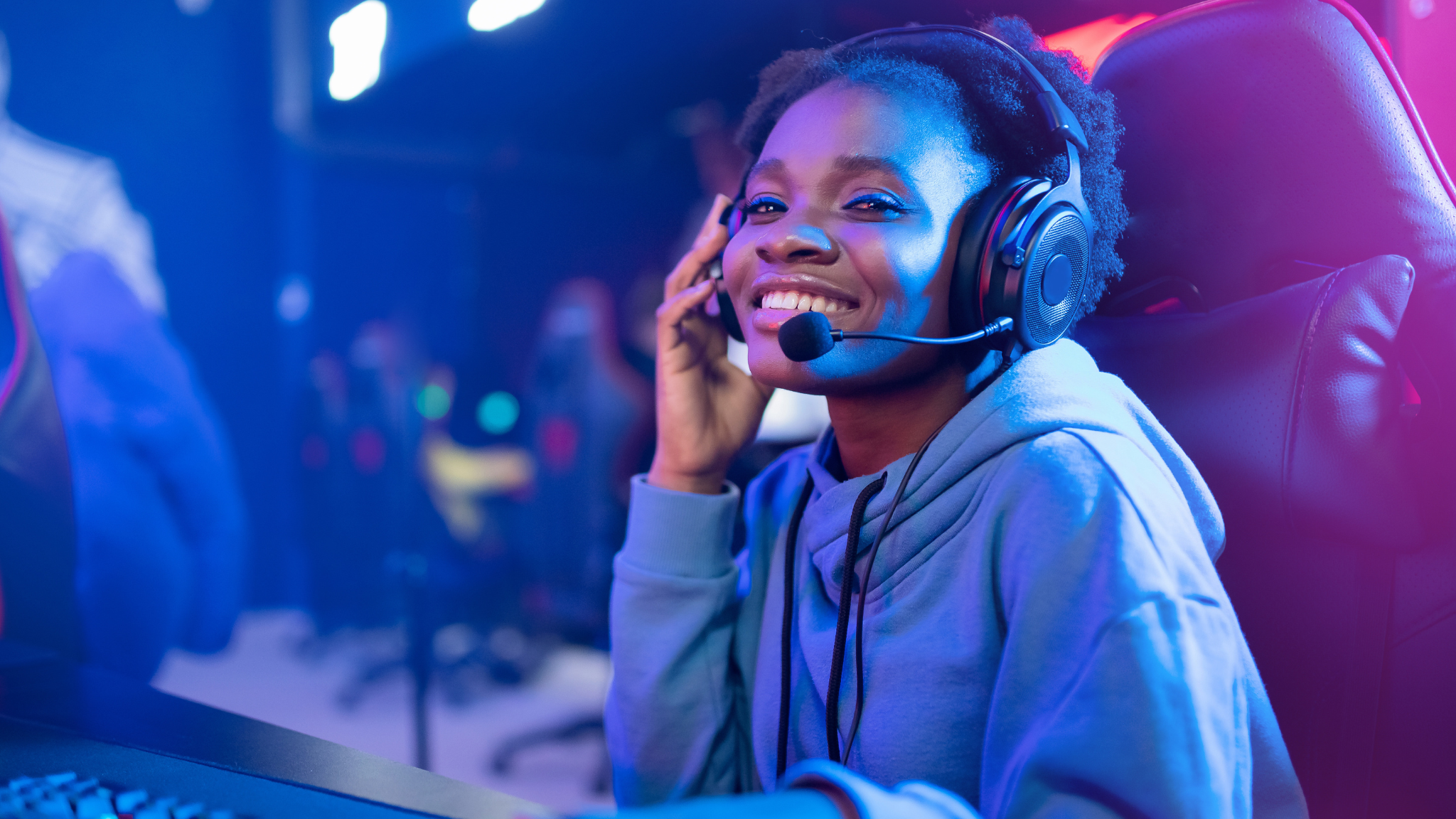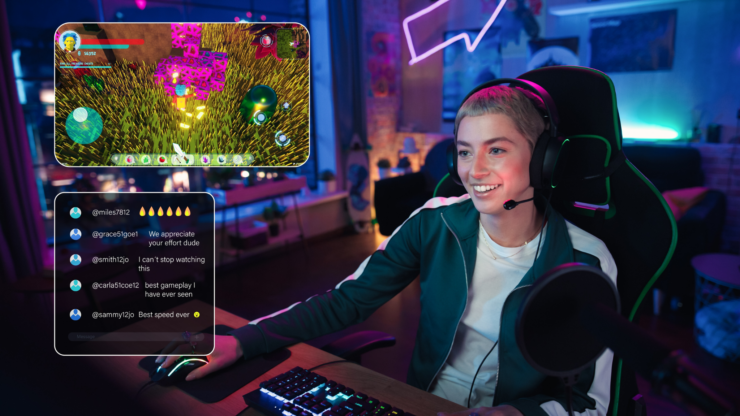When it comes to women who enjoy gaming, the label “Gamer Girl” has sparked numerous debates and polarizing opinions, often accompanied by a tinge of cringe.
According to a report published by Forbes, a mere 16 percent of executives working for leading global gaming companies are women. However, women in the gaming industry are quickly catching up to their male counterparts, from script writers to developers.
The latest report from the Entertainment Software Association (ESA) sheds light on a remarkable trend: the increasing influence of women in the gaming industry. Female gamers now account for a significant 48% of the entire industry, challenging long-standing assumptions and reshaping its landscape.
Parentology spoke with gamer and MakerKids instructor Vivianne Hamel, as well as video game writer Kimberley Ann Sparks, to see how women are breaking the glass ceiling, one pixel at a time.
Challenge Accepted
It’s no secret that the gaming industry has traditionally been dominated by men. According to the International Game Developers Association, women make up only 21% of the gaming industry workforce. This gender imbalance has led to challenges for women who are interested in gaming, including sexism, harassment, and discrimination within the industry and gaming communities.
In addition, female gamers have reported experiencing harassment and sexism while playing online games.
A 2018 study by the Pew Research Center found that 23% of female gamers have been harassed or threatened while playing games online, compared to 15% of male gamers. These challenges can make it difficult for girls to feel welcome in the gaming world.
“I remember playing Battlefield, an online multiplayer war game. And as soon as you are identified as female, you have twelve year olds hurling insults at you and calling horrible names,” Sparks recounts. “The culture there is not as inclusive as it could be for online multiplayer games. And there are ways to do it so that you’re not speaking to other players or that they can’t hear you.”
The challenge with online gaming, as with any online interaction, is the threat of abuse. Once an online game is out in the universe, there aren’t a lot of enforceable checks and balances, and hiding behind a screen provides a level of anonymity with almost zero accountability.

While Hamel herself hasn’t experienced any online harassment, the stories from her friends still indicate its presence.
“My experience when I was a novice gamer and a student was that I was more welcome within the gaming world when I was perceived as still learning skills, or someone who needs help,” says Hamel. As an instructor, I am often questioned more by students, but I am grateful to have the opportunity at MakerKids, a female-run organization, so that I can continue to break down this stereotype and pave the path for more girls to join the field.”
The Rise of Gamer Girls
This increase in the number of female gamers has led to a growing recognition within the industry and gaming communities of the importance of inclusivity and diversity. Many game developers and publishers are actively working to create games and environments that are more welcoming to women and other underrepresented groups.
“I’m seeing more video games with more inclusive characters, even main characters, and I really hope they keep going in that direction,” says Hamel. “I also really hope they start to add female leads that aren’t strong because they are masculine, but strong because they are feminine. A good example is Honey Lemon from Big Hero 6. She’s a female character who finds strength in femininity, a strength that is rarely seen in the industry.”
Sparks started her career writing for television, a transient industry largely defined by contract work. “Video game writing is way more collaborative and long-term. For example, Ubisoft (in Toronto, Canada) is working on a new Star Wars game, so they’re hiring full-time writers,” she says. “So you know that if you apply for this gig, you have a job for at least two, three years, however long it takes for them to make the game. I know people who’ve now moved up into positions where they’re narrative designers or creative directors, and they stay on with the company.”

Initiatives for Inclusion
When Sparks first started writing for video games, she admits the industry was a boys’ club.
“How much of the company was male? At least 90%. There were only the two of us who were the ‘female writers’,” she says.
During her tenure, Sparks observed positive changes in the gaming industry, with a focus on increased inclusivity and respect. She mentions women-led initiatives, mentorship programs, and educational opportunities aimed at encouraging more women to enter the industry, but notes that equity doesn’t end with inclusion; it’s not simply about hiring more women, but making sure there’s an environment to support them.
“The culture has shifted, the industry has grown up with the gamers,” she says. “There are women in gaming groups that are very vocal about standards or things that should be put in place and provide those checks and balances for the industry.”
Advice for Aspiring Female Gamers and Game Makers
So how can we encourage more girls to become gamers?
Here are some tips for parents on how to support their daughters’ interests:
- Introduce them to games: Start by introducing your daughter to a variety of games, including ones that are age-appropriate and cater to her interests. This can help expose her to the different genres and types of games available.
- Play games with them: Play games with your daughter to show her that gaming can be a fun and social activity. This can also help create bonding experiences and encourage healthy communication.
- Discuss the benefits of gaming: Discuss the benefits of gaming, such as improved problem-solving skills, hand-eye coordination, and teamwork. This can help counter any negative perceptions of gaming that your daughter may have heard.
- Teach advocacy and allyship: Teach your daughter about advocacy and allyship and encourage her to speak out against sexism and gender discrimination in the gaming industry and beyond. Encourage her to support and uplift other women in their pursuits.
- Emphasize the importance of diversity: Emphasize the importance of diversity in the gaming industry and other fields. Encourage your daughter to seek out and support games and companies that prioritize diversity and inclusivity.
“Try it! You might have a bad experience or two, you’ll find friends and people you can really connect with,” says Hamel. “And be confident in your ideas! If you have an idea you want to try, say it and be confident in yourself.”
As for Sparks, she has taught a number of gaming programs and encourages aspiring female game developers to see what’s out there.
“It has always skewed heavily more male than female. But there’s opportunities out there,” she says. “Women in Film and Television has a mentorship. If you want to be an agent, there’s a co-op program where you intern for one of the agencies. If you’re interested in game design or game writing, there are a lot of classes. There are places where you can learn video game writing. Susan O’Connor, who wrote Tomb Raider and some of the bigger games also has a video game writing program. There are a lot of women in the industry who are spearheading these kinds of things. You’re going to encounter jerks everywhere, but the culture has shifted.”
While challenges and obstacles remain for women in the gaming industry and gaming communities, there is a growing awareness of the importance of inclusivity and diversity, and steps are being taken to create more welcoming environments for all gamers. By encouraging girls to become gamers and promoting critical thinking and advocacy skills, we can break down barriers and empower them to make a significant impact on the gaming industry.








Add comment